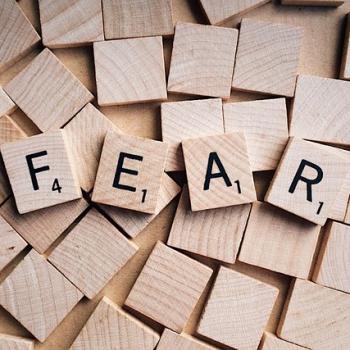Ironically, the dawning age of science also became an age obsessed with the work of Satan on earth, specifically his use of witches and other evil accomplices. Witchcraft trials during the early modern period took the lives of perhaps as many as sixty thousand people. Trials of people suspected of being "loupe garou," or werewolves, became common in sixteenth and seventeenth-century France. Seldom imagined as forlorn beings travelling under a curse, magistrates and churchmen described the werewolf instead as a human being who willfully transformed into a monster with the help of the devil.11
The long history of humanity's monstrous fascinations, and the mythologies and theologies that supported them, would seem to have little to do with the early American republic or its citizens. The American Revolution grew in part out the Enlightenment goal of applying rationality to politics. While it is too simplistic to view the creation of the United States as merely the fulfillment of the Enlightenment project, many of America's founders did imagine a new nation reared on the foundations of human reason. Patriots forged the United States, it has often been explained to us, out of a wedding of Enlightenment political ideology and a growing sense of national destiny. Adams, Franklin, and Jefferson admired the political philosophy of John Locke, who favored the creation of rational republics where the superstitions of statecraft and "priestcraft" had no purchase. The new republic, seemingly, would live in a sunlit world without shadows, a place where no monster could hide.12
1 See Richard Kearney, Strangers, Gods and Monsters (New York: Routledge, 2003). Kearney argues that monsters are the face of historical and cultural ambiguity, a challenge thrown down in the face of "neat divisions and borders." See especially pages 115-21.
2 James Twitchell, Dreadful Pleasures: An Anatomy of Modern Horror (New York: Oxford University Press, 1985), 5-7.
3 See Jonathan Kirsch, God against the Gods: The History of the War Between Monotheism and Polytheism (New York: Viking Compass, 2004), 28-32.
4 Timothy Beal, Religion and Its Monsters (New York: Routledge, 2001), 30-31. 5 Stephen Asma, On Monsters (New York: Oxford University Press, 2009), 64-67; Beal, Religion and Its Monsters, 5
5. Both are drawing on the work of German scholar Rudolph Otto, who, in his 1917 Idea of the Holy, described what he called "mysterium tremendum" as the typical human response to true religious experience, the sense of horror that comes with an encounter with the "Wholly Other."
6 Elaine Pagels provides the best guidance through this complex story in The Origins of Satan (New York: Vintage Books, 1995). See especially chapters 5 and 6.
7 Jeffrey J. Cohen, Of Giants: Sex, Monsters and the Middle Ages (University of Minnesota Press, 1999) 10, 11.
8 Jeffrey Burton Russell, Lucifer: The Devil in the Middle Ages (Ithaca: Cornell University Press, 1984), 63, 73-74.
9 Asma, On Monsters, 81-82.
10 One of the more interesting discussions of the folklore, and the possible medical roots of the folklore, of the vampire can be found in Paul Barber's Vampires, Burial and Death: Folklore and Reality (New Haven: Yale University Press, 1988).
11 Brian P. Levack, The Witch-Hunt in Early Modern Europe 2nd Edition (New York: Longman, 1995).
12 Behind my interpretation that follows is the awareness that French theorist Michel Foucault's work shows how Enlightenment modernity created a regime of knowledge that defined the human in relation to how discourses of power circulated through the culture of the prison and the asylum, and constructed the deviant and the abnormal. Science is no neutral arbiter and/or observer that studies the human subject and the physical world. The Enlightenment itself is a construction of a "normal" human ontology that celebrates the "enlightened" subject. See Michel Foucault, The Origin of Things: An Archaeology of Human Sciences (New York: Vintage Books, 1994),328-35, and Foucault, Discipline and Punish: The Birth of the Prison (New York: Vintage Books, 1991), 141-49, 195-228.
For more about Monsters in America, including an exclusive interview with the author, visit the Patheos Book Club, here.




